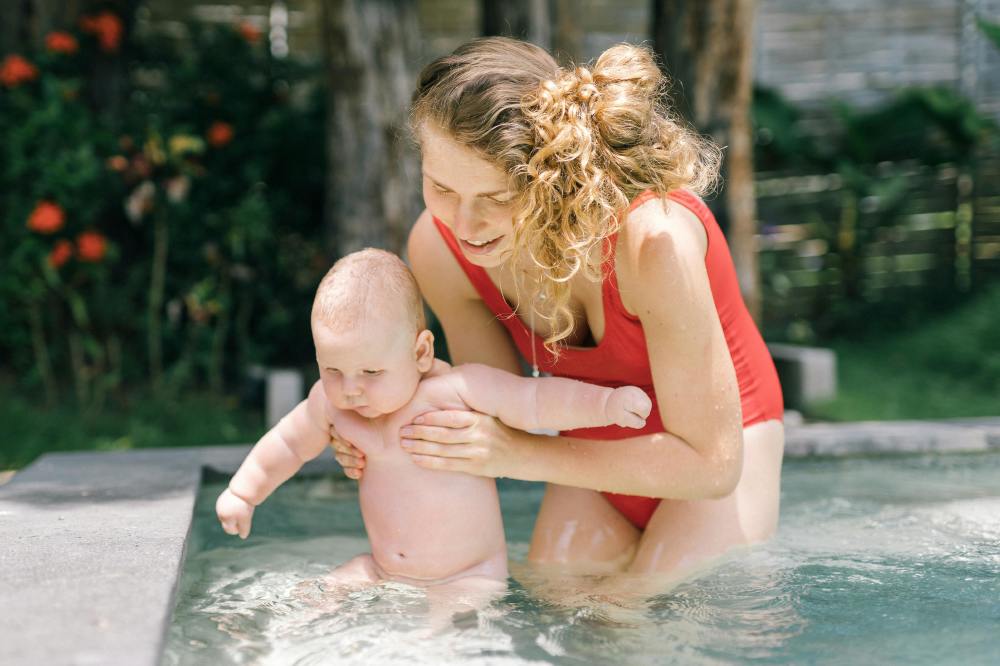You shouldn't be afraid to ‘dive in’ when it comes to learning new skills.

Swim with your baby
Encouraging parents to take their little ones swimming from an early age is a brilliant first step in learning this vital life skill.
Why start a habit? By Training and Development Manager at Swimming Nature, Katie Mathew’s.
- When babies are introduced to swimming early, it prepares them to be confident swimmers later in life
- Removes the fear factor
- Not all kids get taught at school
- It’s the one life skill you can be taught before your baby can, walk, talk or even crawl
- Babies love the water
- Swimming promotes sleep and can help baby work up an appetite
- Taking your little one swimming helps strengthen the bond between parent and baby as well as
- Physically swimming benefits little ones as the lack of gravity helps to improve co-ordination and balance and develops muscle control
- Introducing babies to their peers and encouraging social interaction
Training and Development Manager at Swimming Nature, Katie Mathew’s comments on the benefits of swimming: “Swimming is a great activity for parents and children to do together for many reasons. Firstly, taking your little one swimming helps strengthen the bond between parent and baby as well as introducing babies to their peers and encouraging social interaction.
“The earlier you start the easier it is to increase your baby’s confidence and development in the water - it is essential that little ones get used to the water and don't have any fear when they are young, which is why it's best to start early like the Duke and Duchess of Cambridge are doing with Prince George – start a habit that lasts a lifetime.”
A guide to baby swimming Strokes:
Step 1
- adapting to water environment and discovering movement in water, balance and co-ordination fit for prince
- assisted submersion and basic breath control (holding breath)
- assisted floatation, rotation and leg kick
- assisted jumping in the pool
Step 2
- develop breath control (holding breath and blowing bubbles through mouth)
- independent submersion
- unassisted floatation and jumping in
- supported kicking, and rotation
- independent movement in the water (push and glides)
Step 3
- full breath control (holding breath, blowing bubbles through mouth and nose)
- independent kicking, paddling and rotation
- basic water confidence and safety
Five reasons why you should go baby swimming:
1. Builds confidence
2. Great way to start gentle exercise after the birth
3. Helps your baby’s development
4. It’s fun and encourages a deep sleep
5. If Kate and the royal baby are doing it…..

